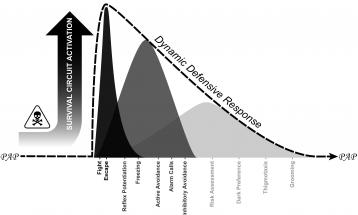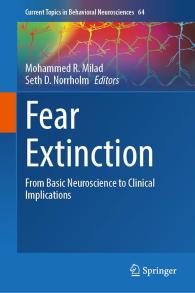Anxiety disorders involve abnormal threat processing. For instance, in PTSD (post-traumatic stress disorder), stimuli present during a trauma become conditioned threats that later elicit exaggerated, inappropriate or prolonged defensive reactions. These reactions can become so intense and frequent that they disrupt normal activities and diminish overall health and well-being.
Major behavioral paradigms studied in the lab include: threat conditioning, extinction, safety conditioning and active avoidance.

We employ a number of techniques to identify and manipulate neural circuits important for coping such as: imaging of immediate-early genes, pharmacology, lesions, chemogenetics and optogenetics.
We are particularly interested in how drugs may interact with therapy-related learning processes. Our long-term goal is to identify better ways to tailor therapy and drug treatments to the individual through studies of circuit dysfunction in rodents.

Dr. Cain’s latest article, “Beyond Fear, Extinction, and Freezing: Strategies for Improving the Translational Value of Animal Conditioning Research“, appears in Current Topics In Behavioral Neurosciences.
Research Focus
To better understand the neural circuits and cellular mechanisms important for learning to effectively cope with traumatic experience. We study learning and memory processes critical for regulating and suppressing excessive threat reactions and investigate Pavlovian and instrumental aversive conditioning phenomena.
Current Investigations
- Neural Circuits Mediating Post-threat Recovery: We are testing the hypothesis that prefrontal cortex (PFC) integrates information about risk and suppresses amygdala-mediated defensive reactions once a threat has ceased. Chemogenetics and optogenetics are being used to remotely control neural activity in mPFC and amygdala in order to affect the duration of post-threat recovery.
- Adrenergic Regulation of Active Avoidance (AA): In AA, subjects respond to terminate a threat and prevent harm. Although avoidance can be maladaptive, the learning processes important for AA are similar to those necessary for adaptive active coping. We are investigating how propranolol, a beta-blocker, can promote AA by modulating amygdala activity.

